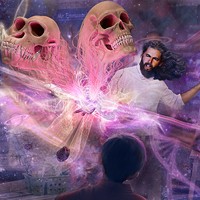Ever wonder how it was decided that 21 was the age of majority? Well, all you frustrated youngsters looking to vent can blame the Brits. In medieval times in western Europe, young men of noble and knightly families normally left their homes to enter in the household of someone of equal or higher rank around the age of 10. There they served as pages, i.e., errand boys -- until the age of 14. For the next seven years they served as esquires attached to adult knights who, in return for having their horses attended to, their armor polished, etc., trained them in the knightly arts. By the 13th century, 21 was the customary age for a young man to be knighted. Likewise, among middle-class families, a boy would normally be apprenticed at the age of 14 to a master to learn a trade. The customary apprenticeship period was seven years. Hence, at the age of 21 they were usually considered adults and old enough to strike out on their own. Like it or not, this custom carried over to America and continues to influence our laws today.
Speaking of Commentary.html
-
Holiday Regime Change
Dec 10, 2003 -
CSO: Seen But Not Heard?
Sep 17, 2003 -
New Blood
Apr 10, 2002 - More »
Latest in News
More by Sam Boykin
-

Divine evolution
Nov 11, 2015 -

The Agony & The Ecstasy
Jun 21, 2012 -

'Dynamite' diet with nutritionist Angela Gallo
Jan 18, 2011 - More »
-
ART: Short Fictions by Cara Ober, featuring potter Barbara Chadwick-Bland
Sunday, April 12
-
Good Eats
Our critics' guide to recommended restaurants in Charlotte
-
Dancing The Bard
Hamlet one of three NCDT premiers








